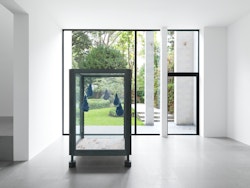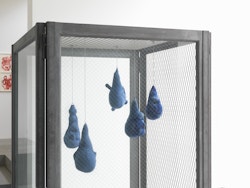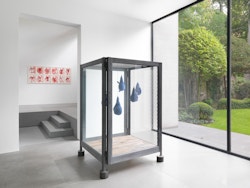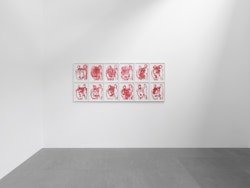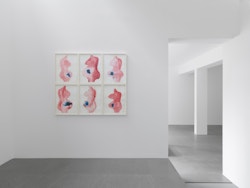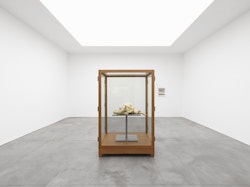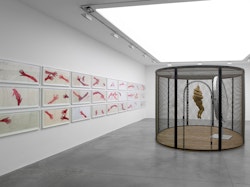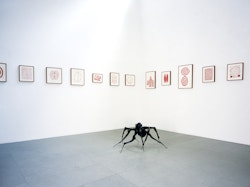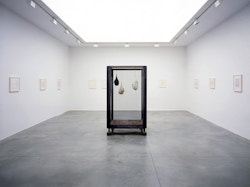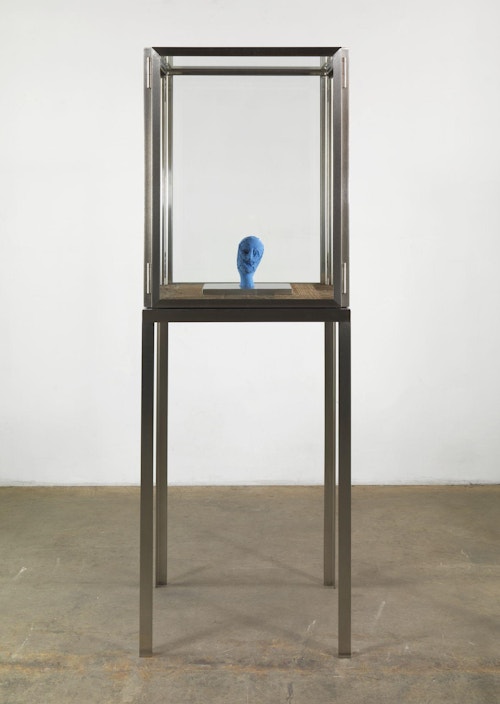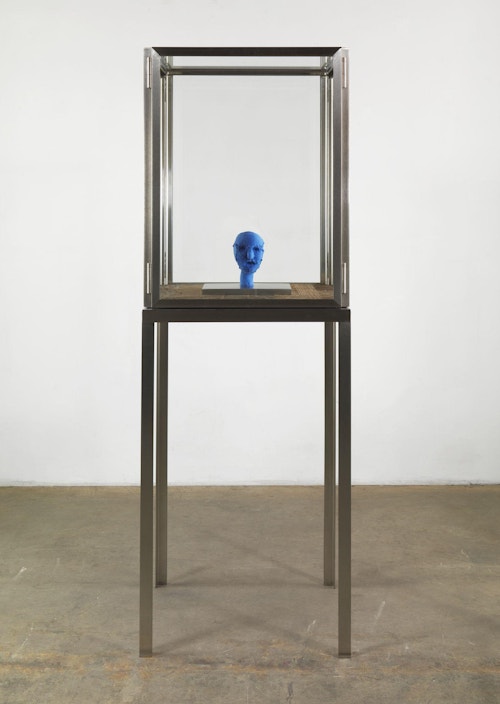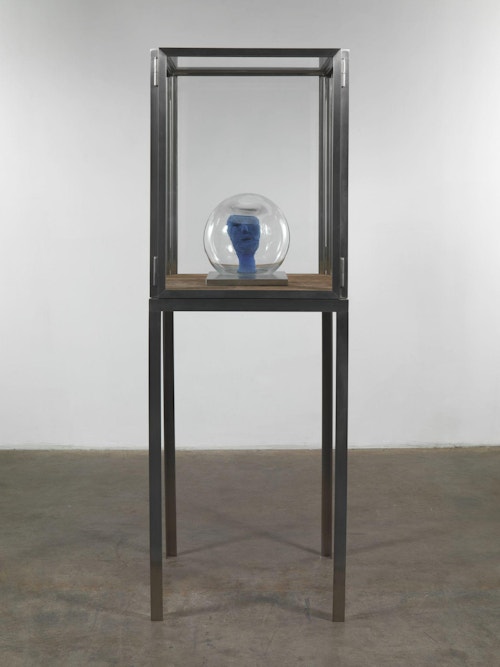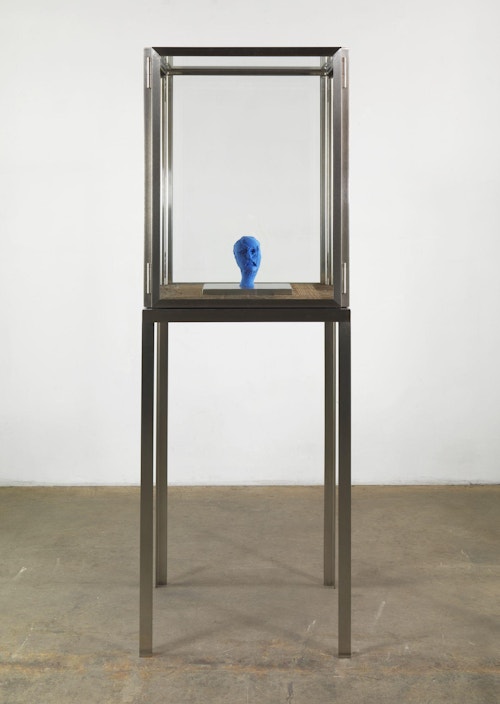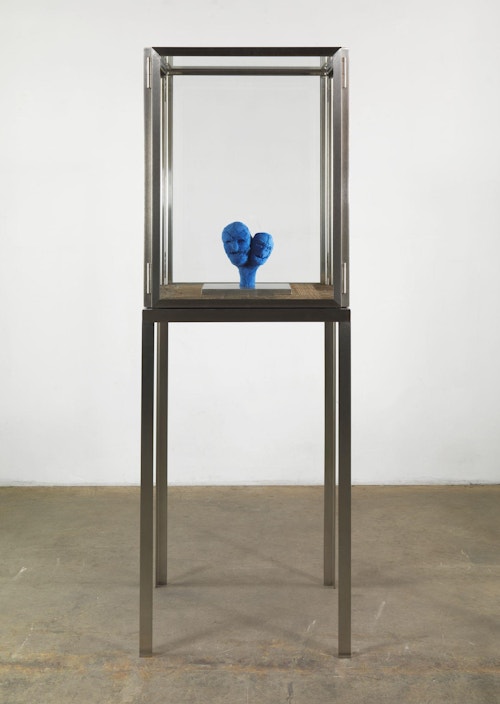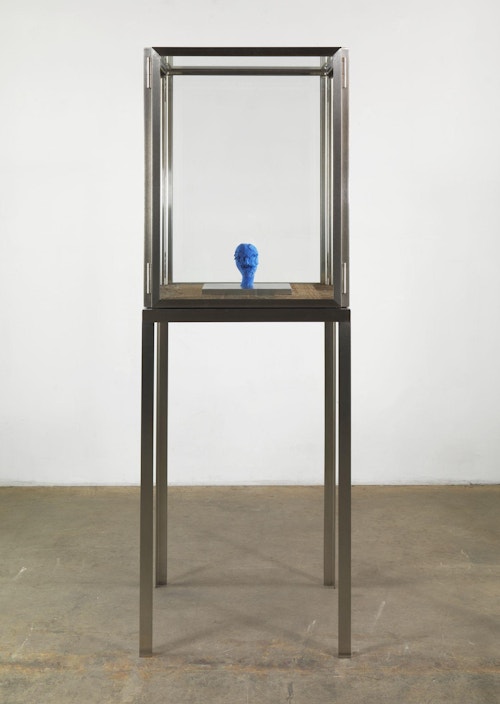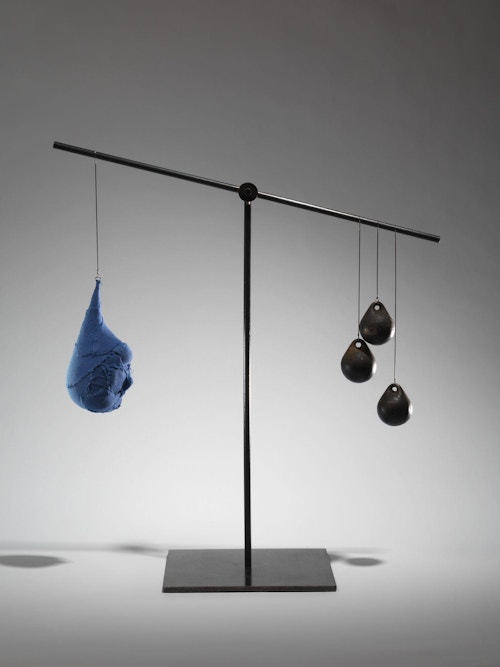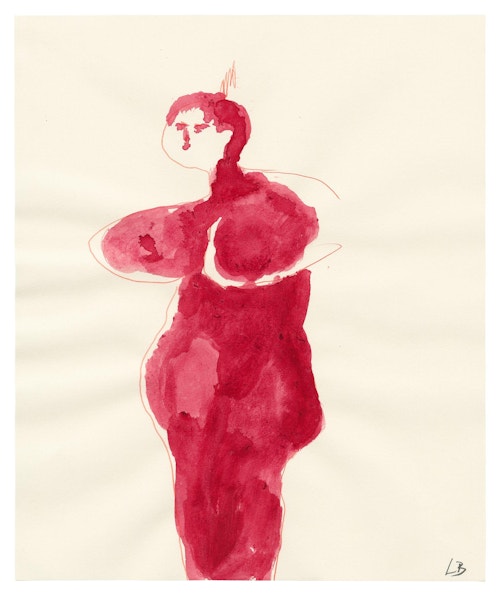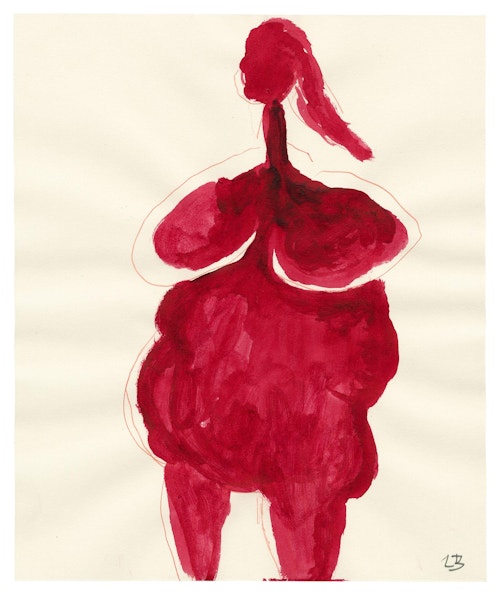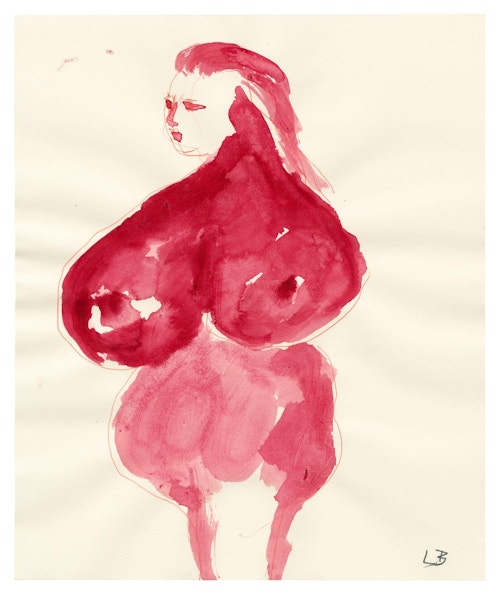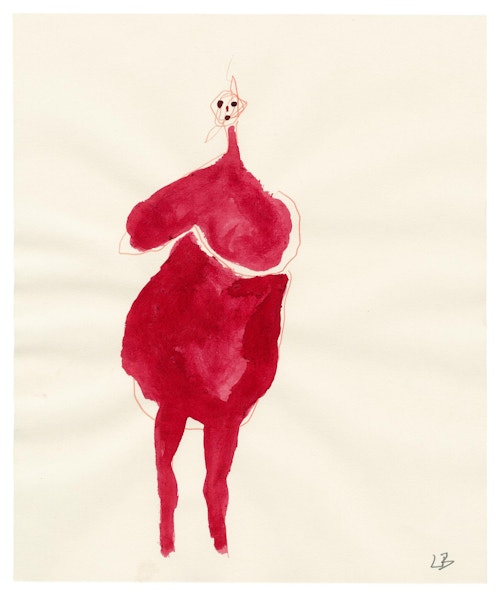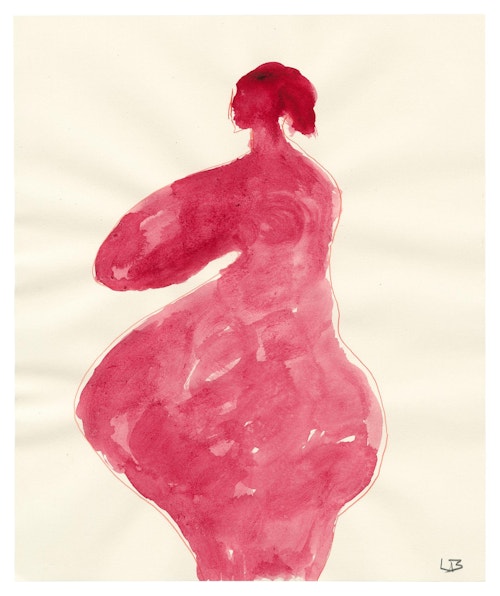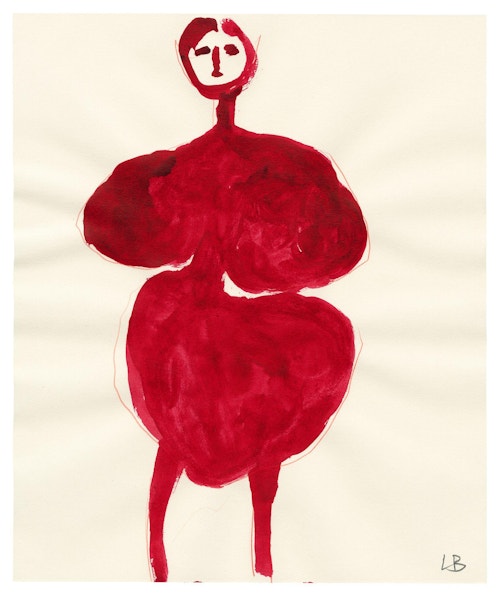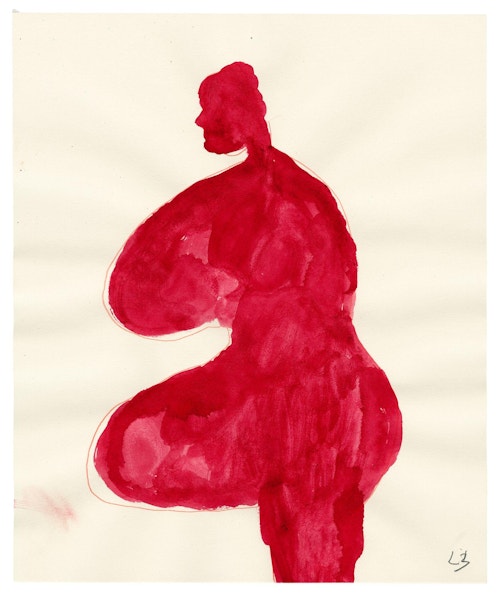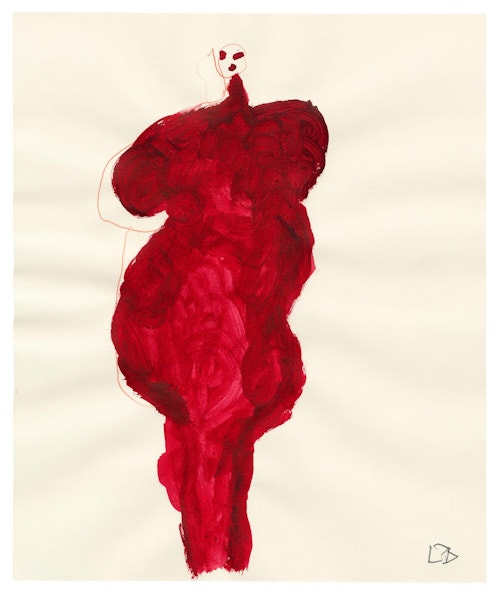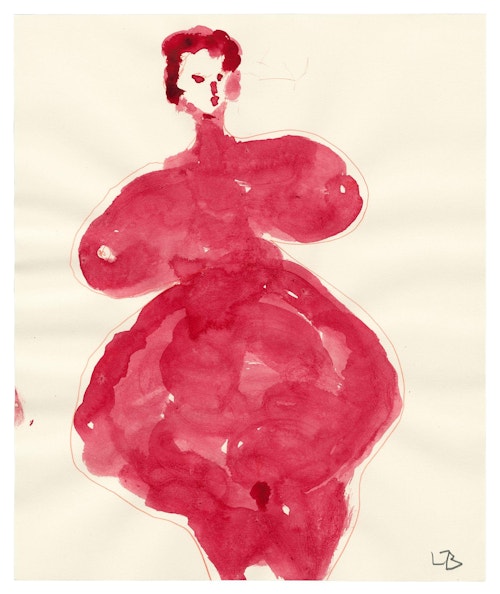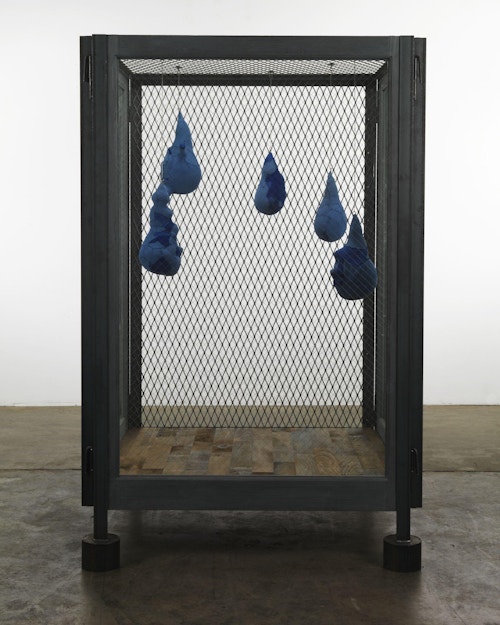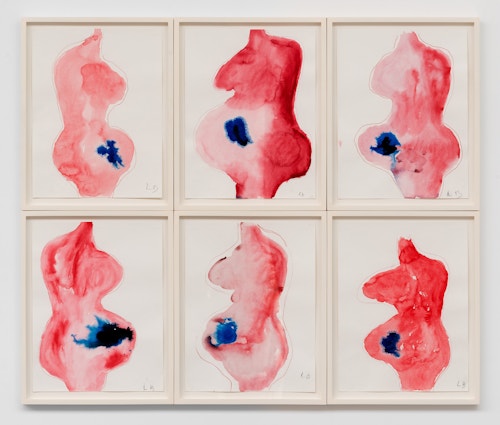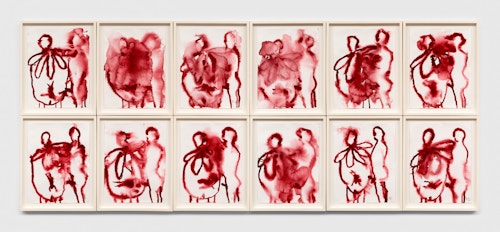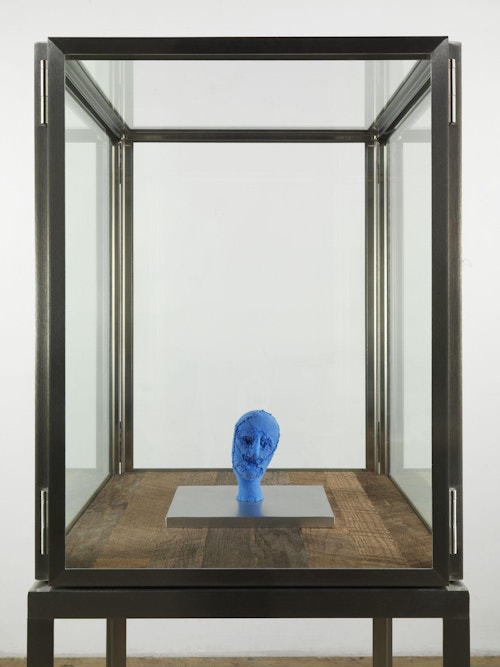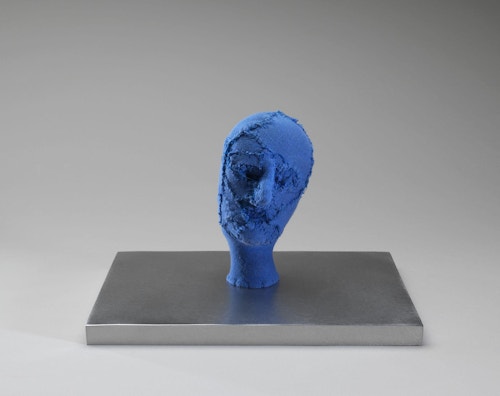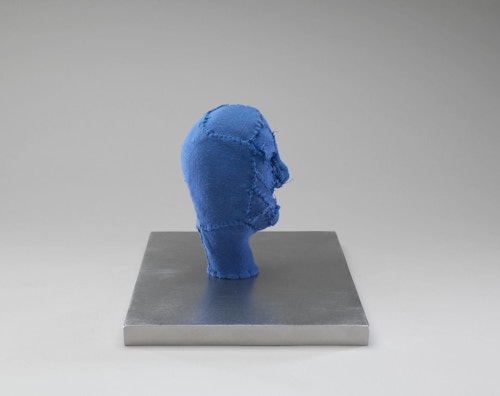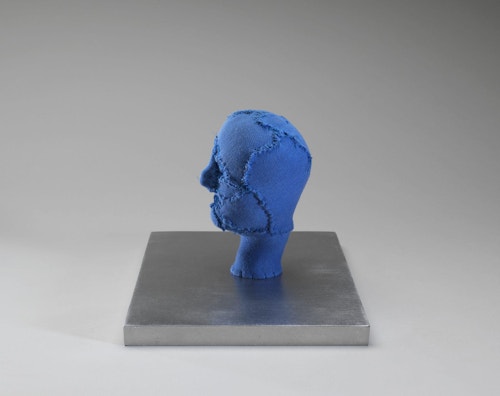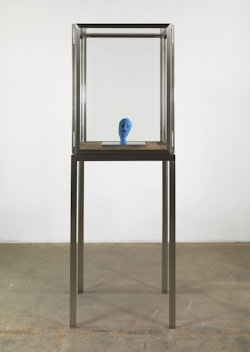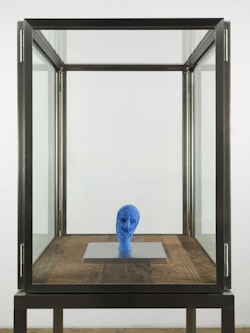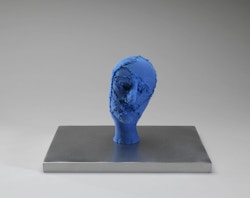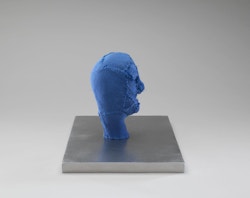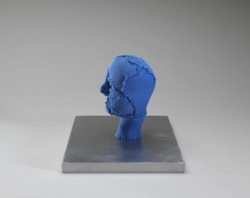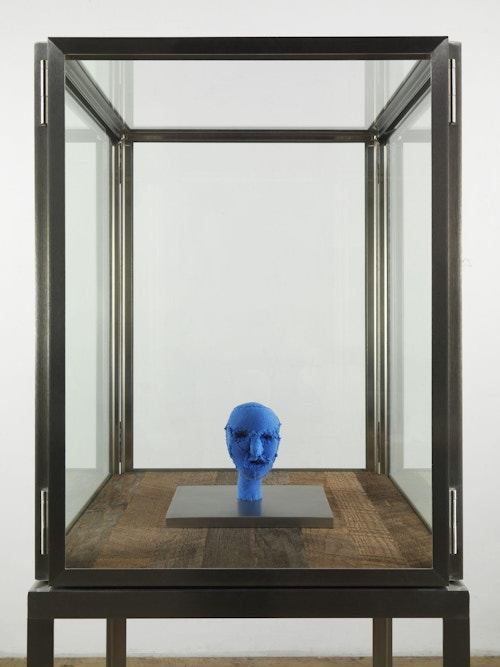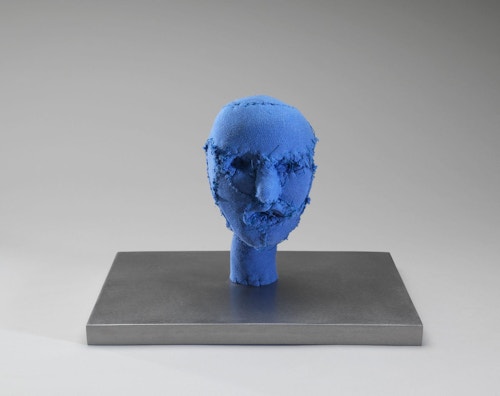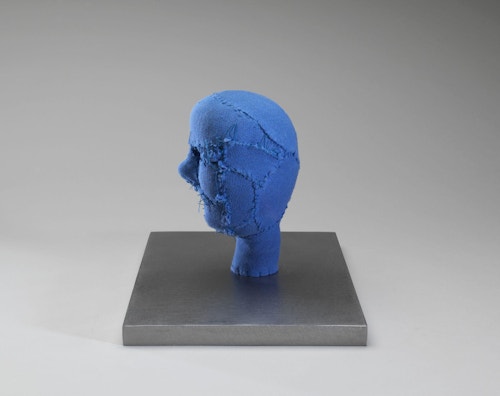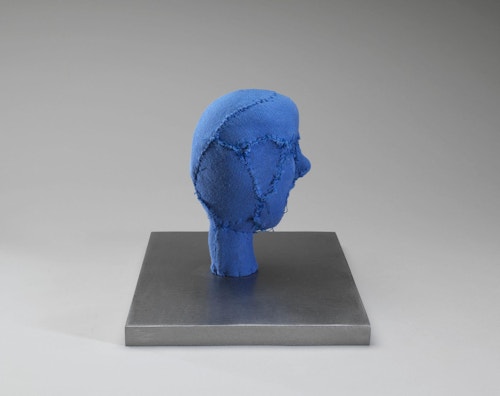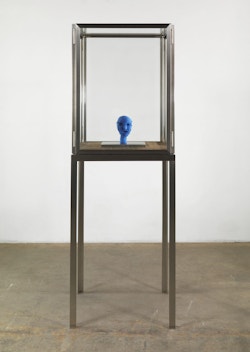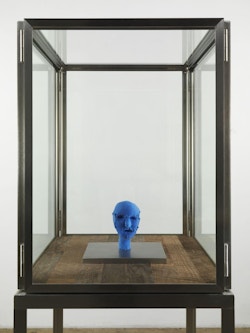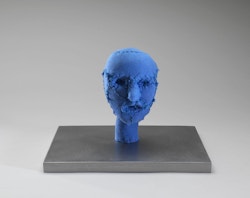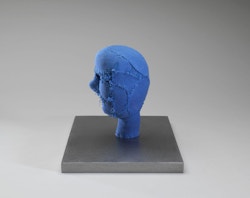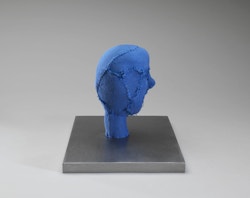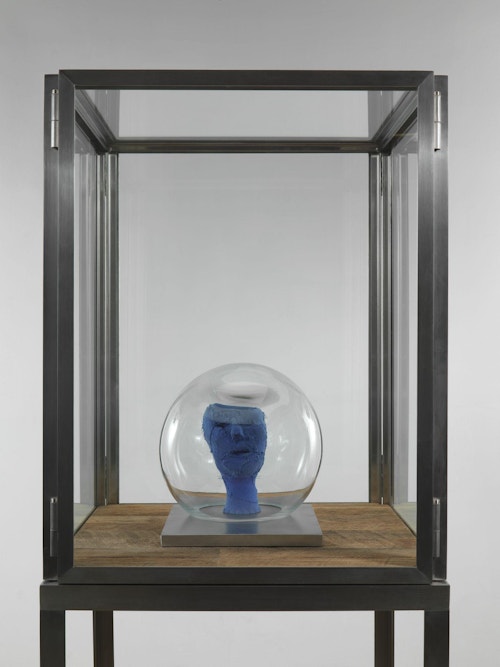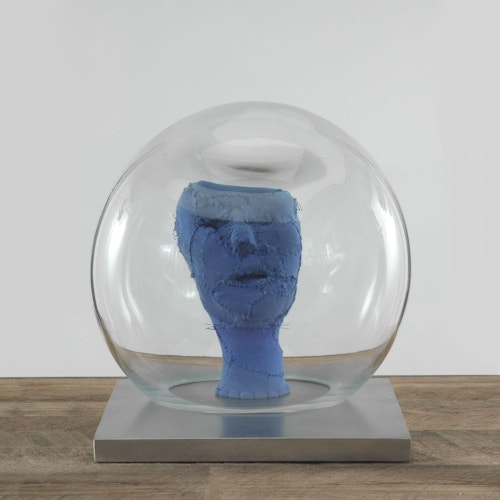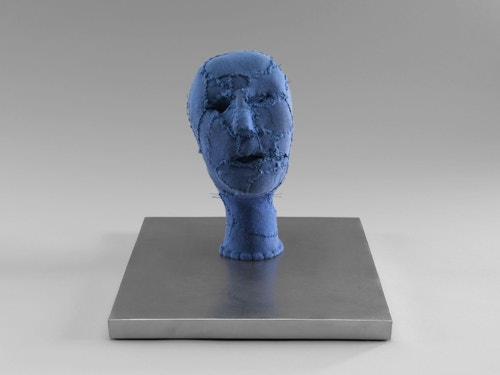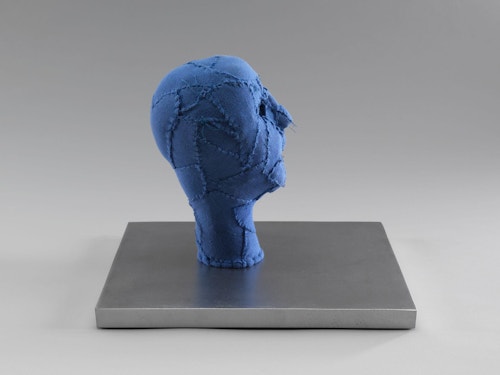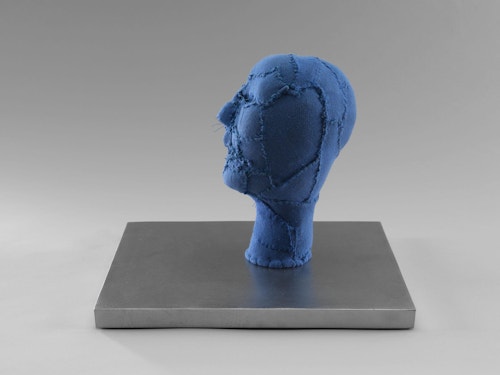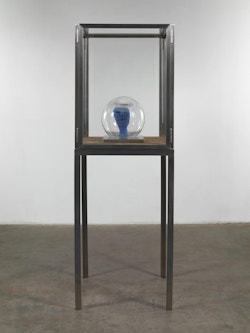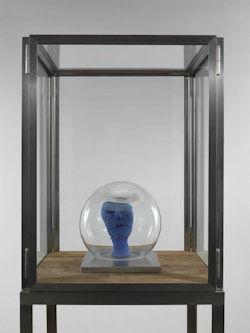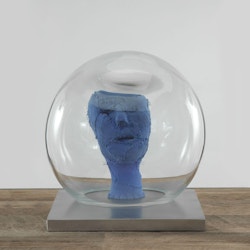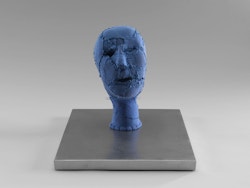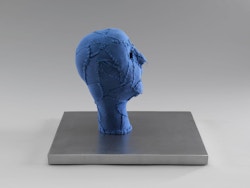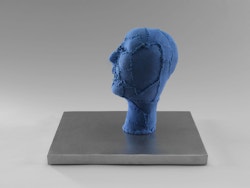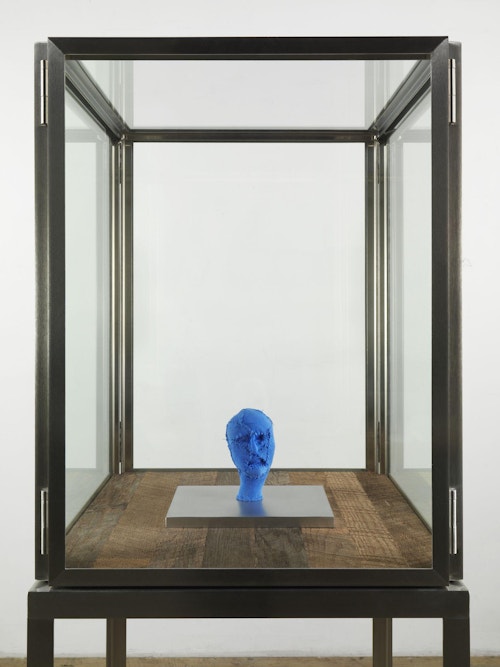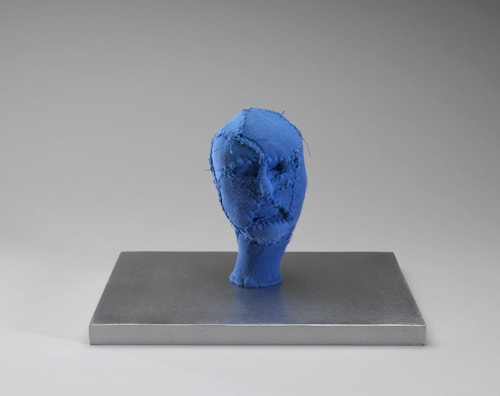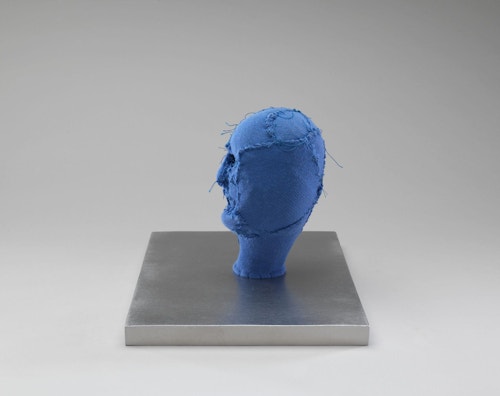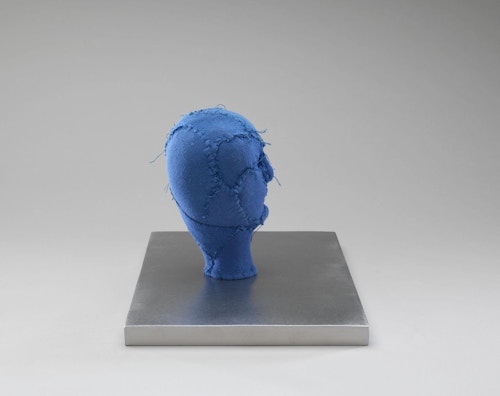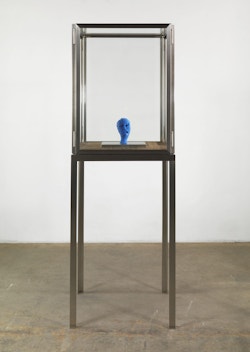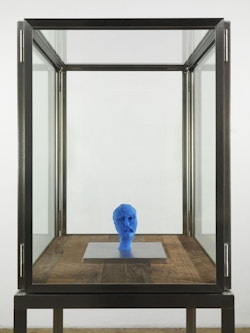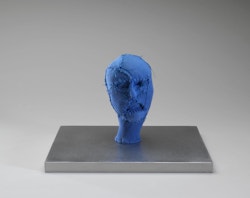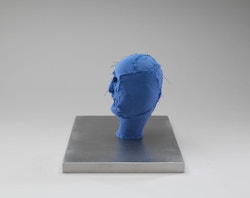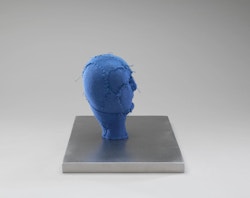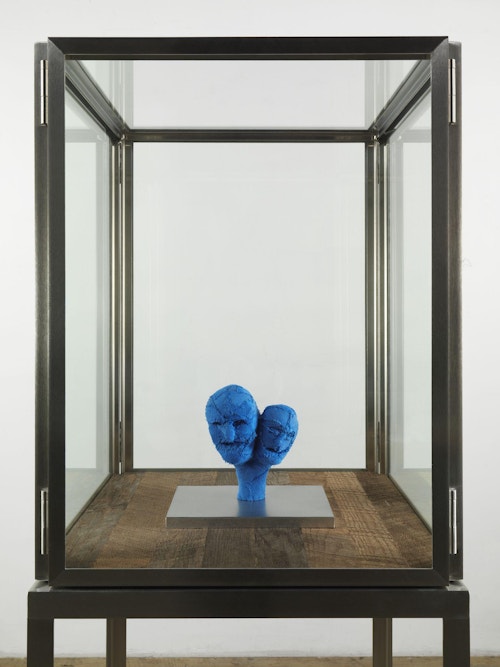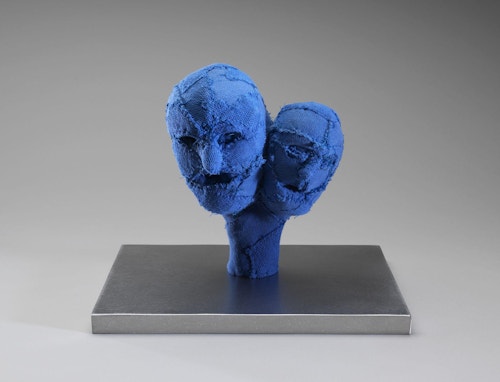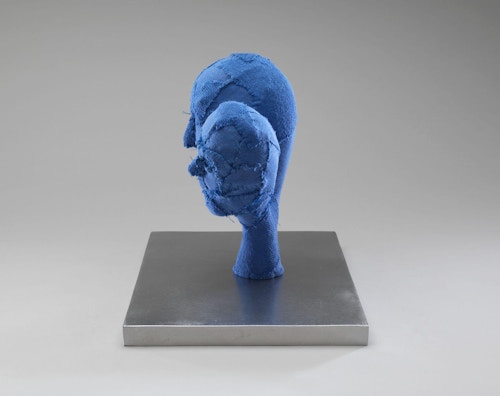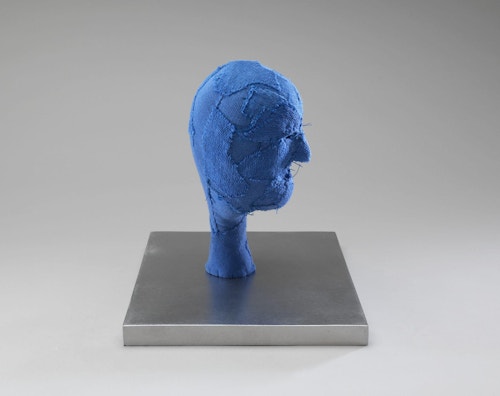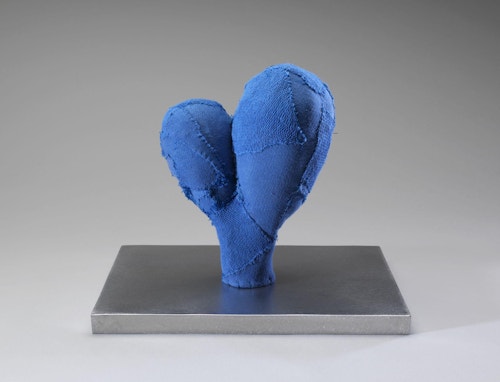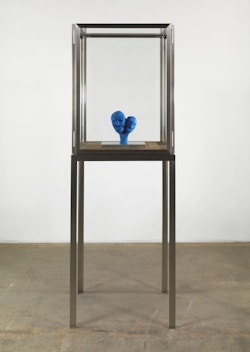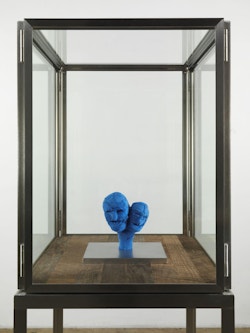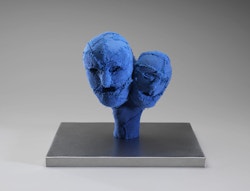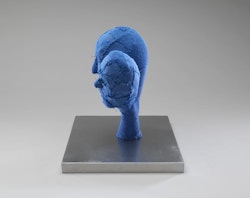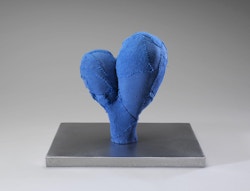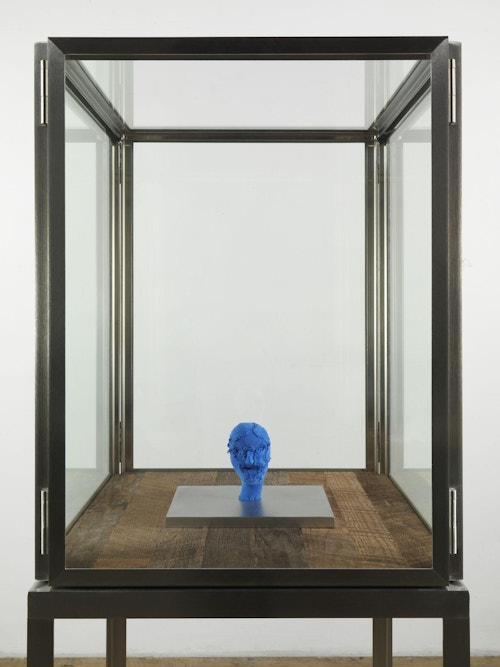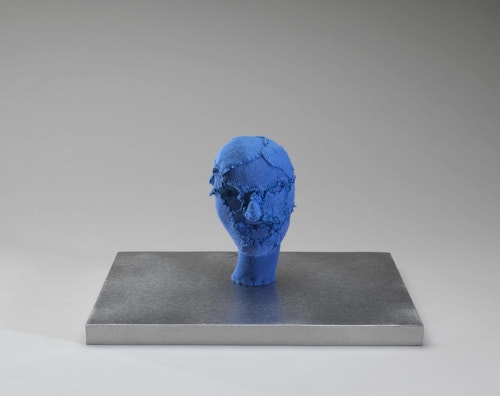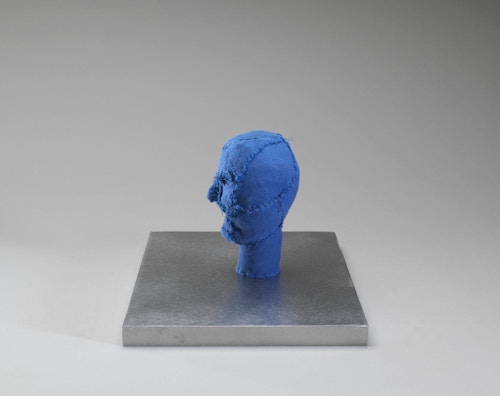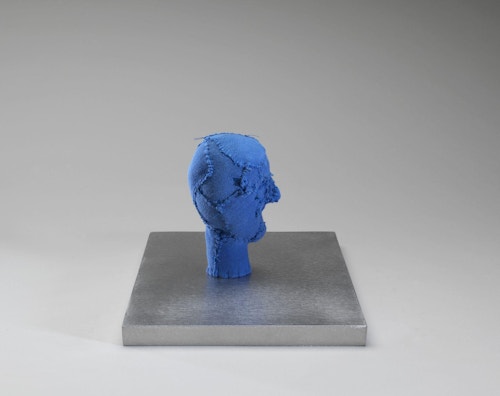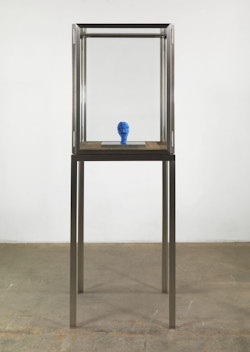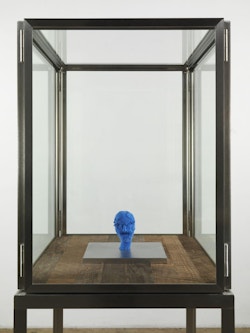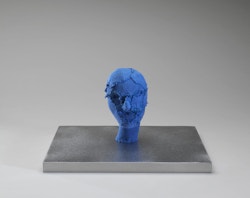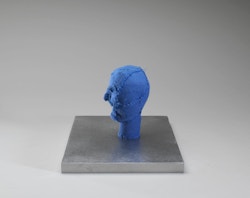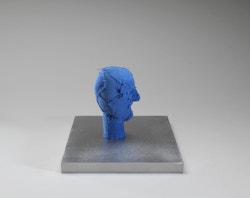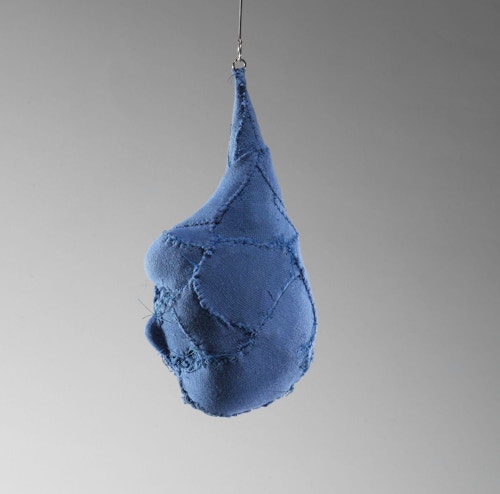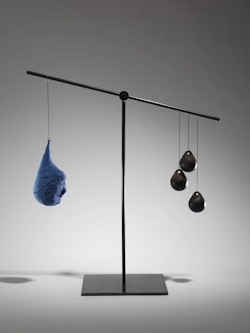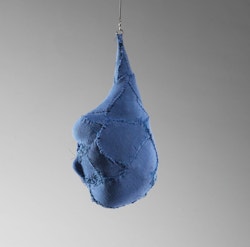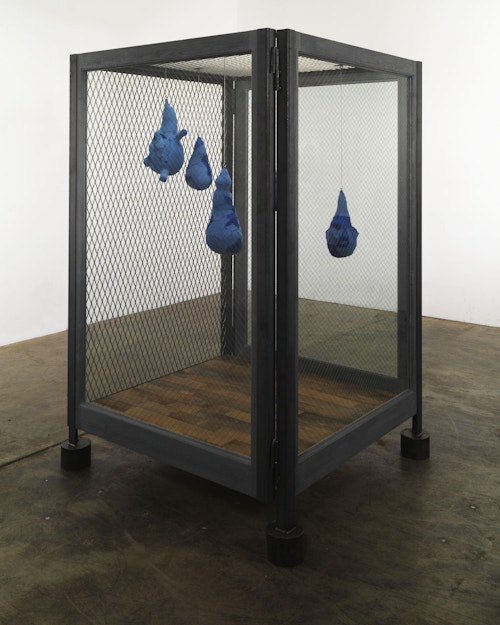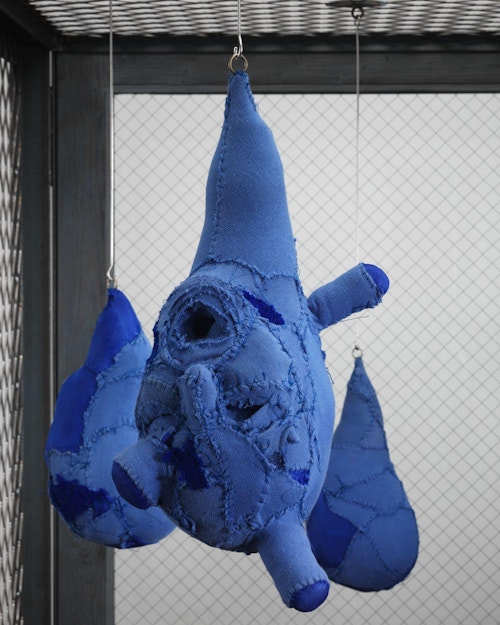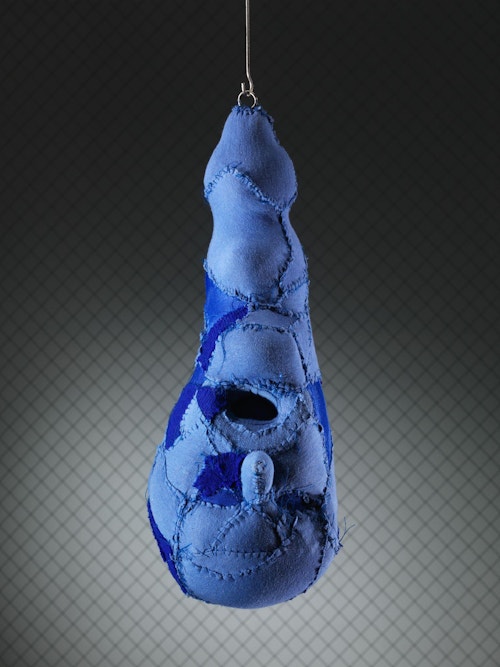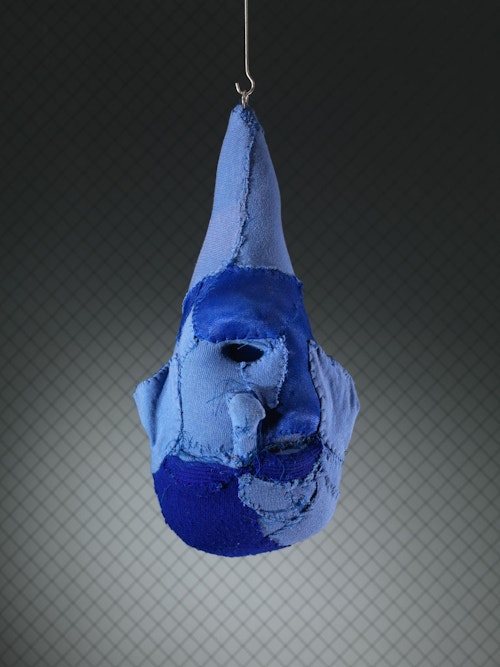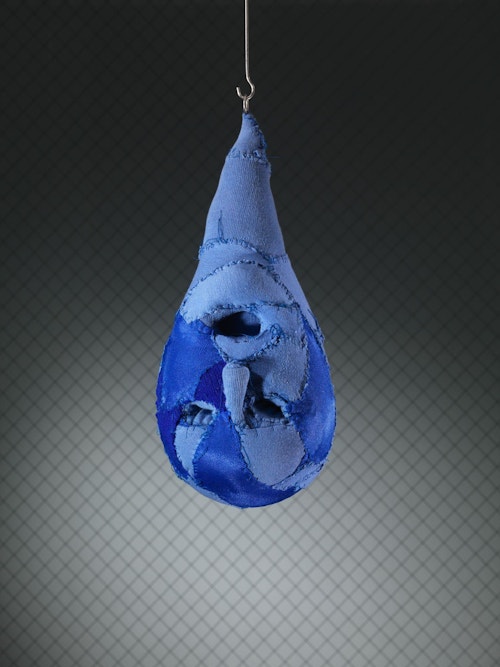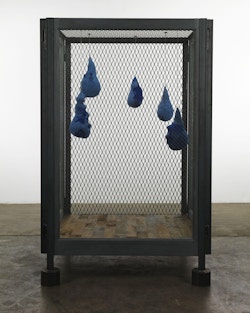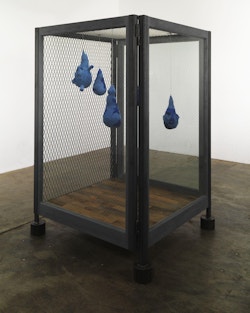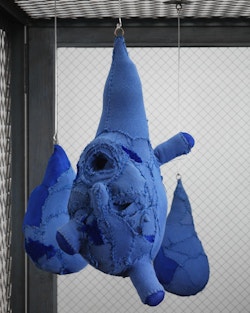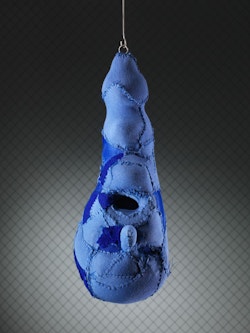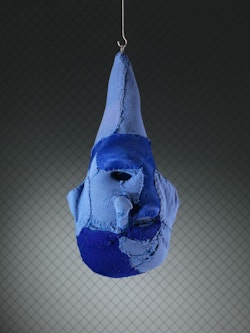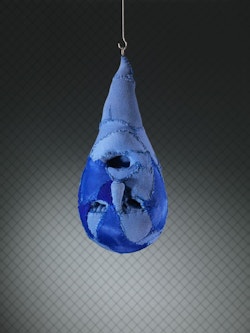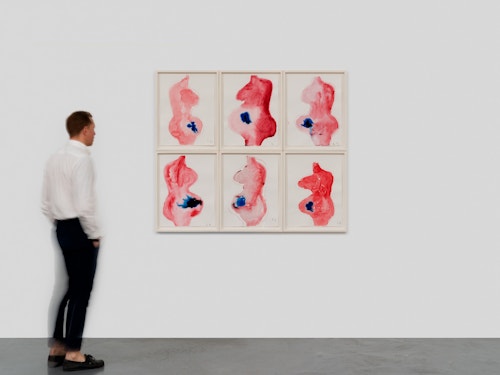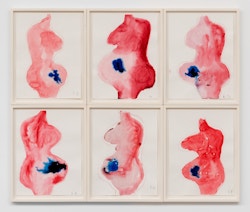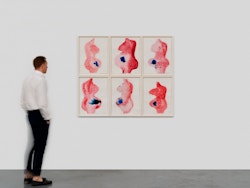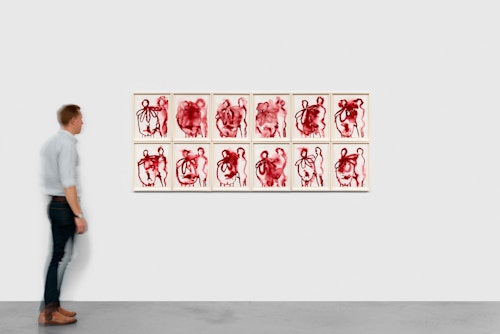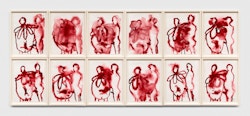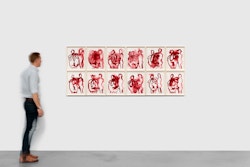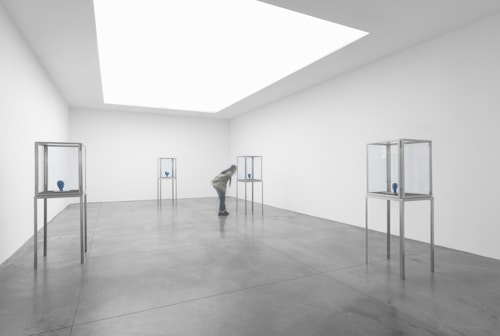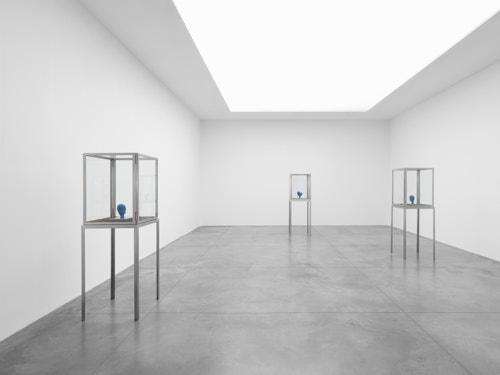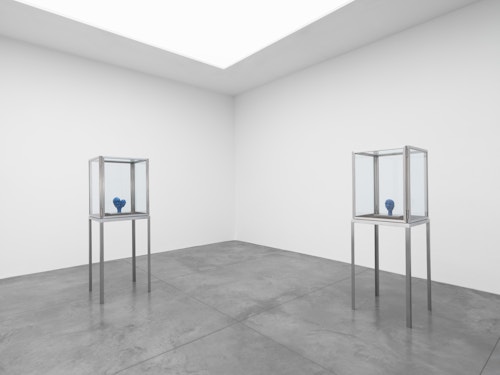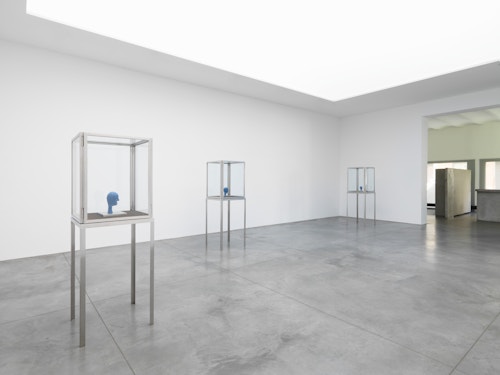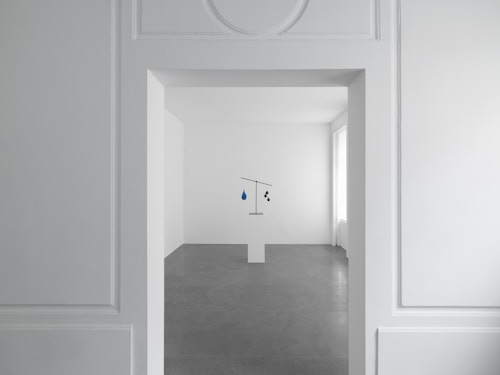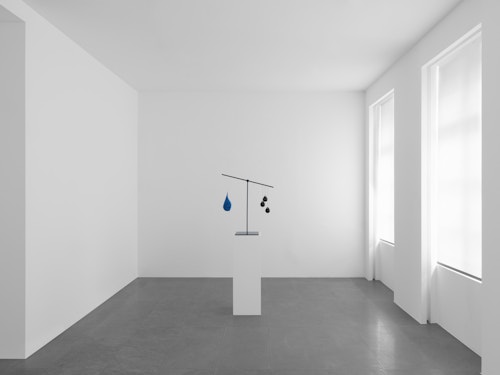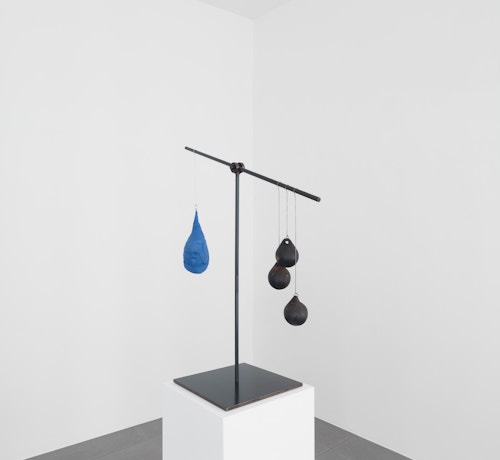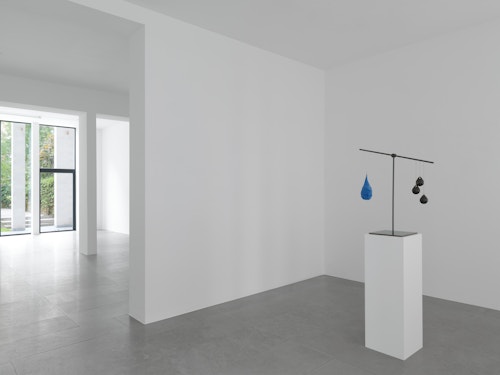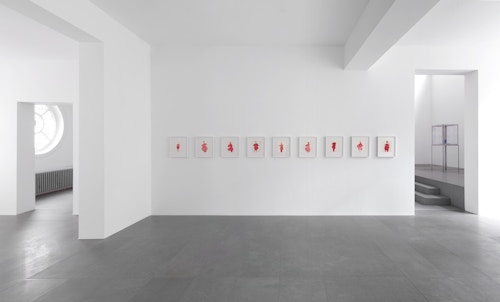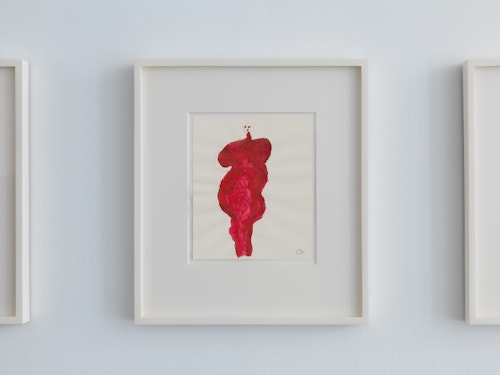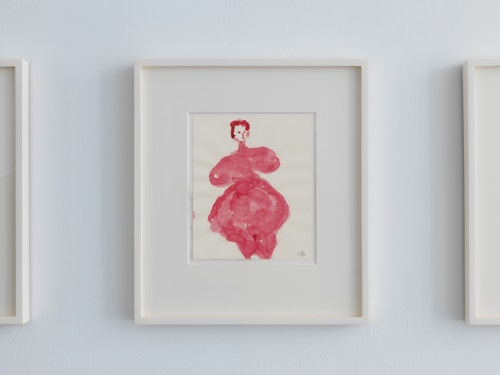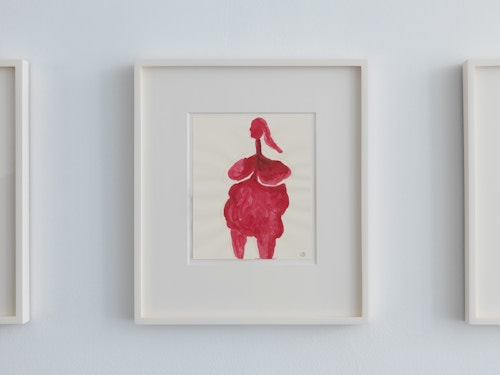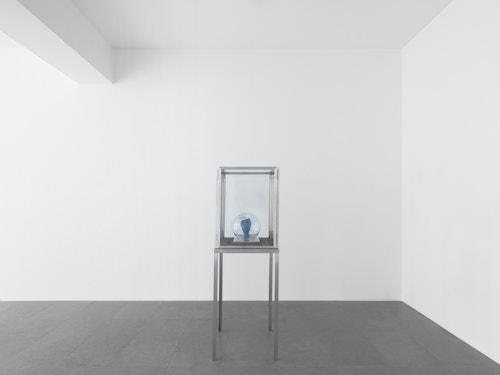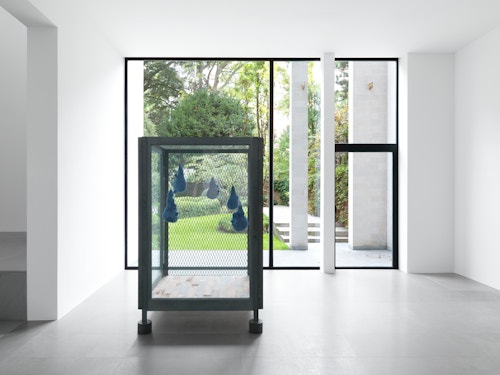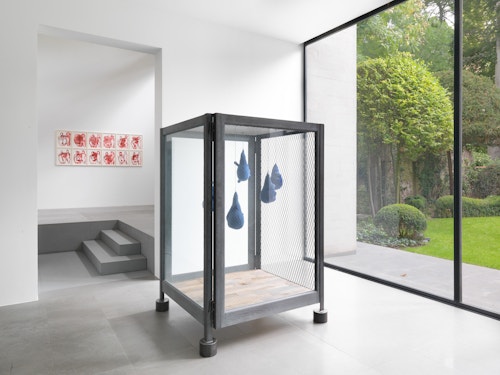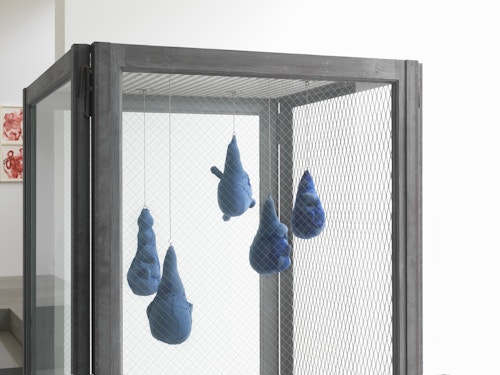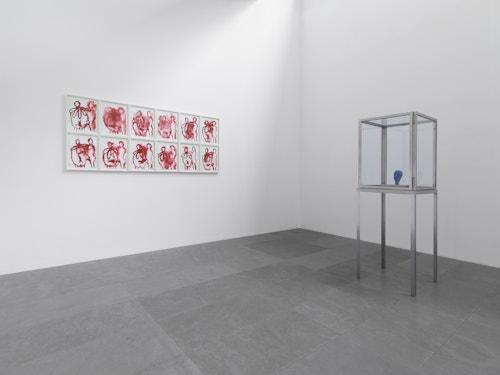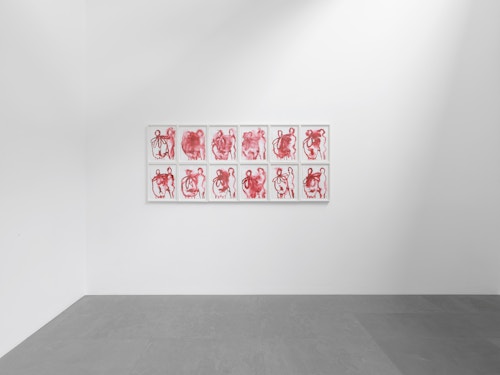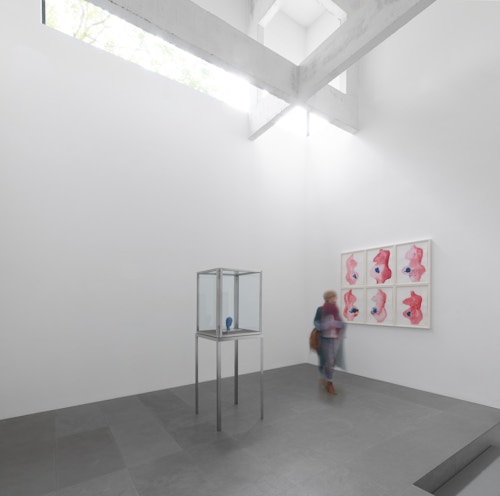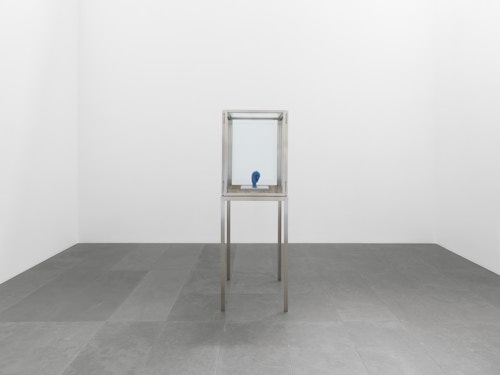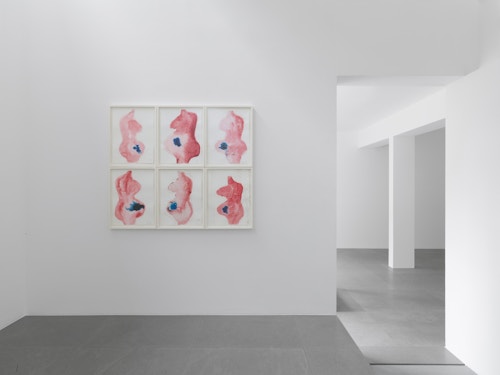
Louise Bourgeois Les têtes bleues et les femmes rouges
Xavier Hufkens is pleased to announce an exhibition of late fabric sculptures and gouaches by Louise Bourgeois (1911-2010). The show will be accompanied by a catalogue featuring an essay by Philip Larratt-Smith.
For Louise Bourgeois, fabric and sewing held great symbolic significance. Born into a family of tapestry restorers, she was surrounded by textiles as a child, and was witness to her mother’s constant efforts at conservation and repair. Bourgeois also helped in the atelier, drawing in the missing parts of tapestries that needed reweaving. The artist came to associate sewing with reconstruction, reparation and reconciliation. In contrast to her earlier bodies of work, in which aggressive acts of separation, like cutting and carving, were predominant, Bourgeois’s late work focused on joining elements together, a restorative act that helped to dispel anxiety and her life-long fear of abandonment.
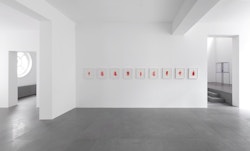
Bourgeois began making her fabric heads when she was in her eighties. To make these sculptures, which were mostly cut and crafted from the same bolt of cloth, she constructed an inner core and gradually added layers of fabric, hand-stitching the features as the form progressed. The crude stitching, loose threads and raw edges achieve an immediacy and directness that is reminiscent of her drawings. As Larratt-Smith notes in his text, the artist also associated colours with specific emotions or symbolic meanings. The intense blue of the heads exhibited here represents melancholia, suffering and acédie. It is also the colour of twilight and creativity: the threshold between day and night, conscious and unconscious, and the passage from one state to another.
The largest and most complex piece, Cell XXVIII (Portrait), is typical of the self-enclosed ‘Cell’ structures that became an important feature of Bourgeois’s late work. Made from salvaged architectural materials, and incorporating found objects along with her own fabric sculptures, the assemblages explore a deeply personal narrative, revolving around the themes of architecture, memory, and the five senses. A subset of the ‘Cells,’ the ‘Portrait Cells’ present a concentrated portrait of a psychological or emotional state, and usually give prominence to the human head as the seat of identity. Cell XXVIII (Portrait) is a symbolic representation of the family dynamic. As Larratt-Smith describes, five heads, all hanging upside down, are “physically isolated from each other, yet imprisoned together within the same jail-like cage.” For Bourgeois, five elements always represented the family unit.
An undercurrent running throughout the exhibition is the eternal oscillation between masculinity and femininity, life and death, creativity and inertia. As Bourgeois famously stated, she had her ‘pink days’ (good, productive, creative) and ‘blue days’ (unproductive, filled with despair). Remaining within a compressed but intense emotional range, the ‘blue’ heads tend to have a fixed identity, which is consistent with her depictions of the male figure. This is counterbalanced by the instability and mutability of the brilliant pink and red gouache drawings of female figures, which the artist made by working ‘wet on wet’. This technique allowed the element of chance to shape the final outcome of her working process. With their full breasts and rounded stomachs, the figures are a lasting testament to Bourgeois’s preoccupation with sexuality, pregnancy, motherhood, and the cycles of life.

Publication
Louise Bourgeois
Les têtes bleues et les femmes rouges
text by Philip Larratt-Smith, published by Xavier Hufkens, 2015, 76 pages, English
Louise Bourgeois was born in Paris in 1911 and died in New York in 2010. Her work is represented in the collections of important art institutions throughout the world, and continues to be exhibited on the international stage. Monographic exhibitions in 2015 included Louise Bourgeois. Works on Paper, Tate Modern, London; Louise Bourgeois. I Have Been to Hell and Back, Moderna Museet, Stockholm, Sweden (travelling to Museo Picasso, Málaga, Spain); Louise Bourgeois. Structures of Existence: The Cells, Haus der Kunst, Munich, Germany (travelling to the Museum of Contemporary Art, Moscow, Russia, and the Louisiana Museum of Modern Art, Humlebaek, Denmark during 2015-17).
